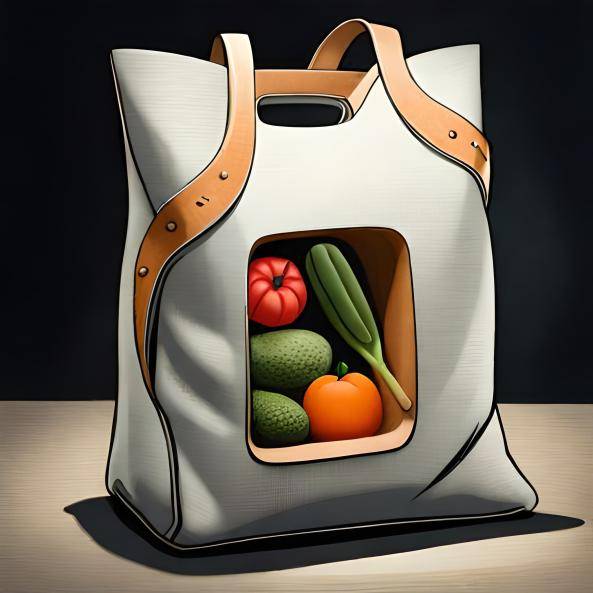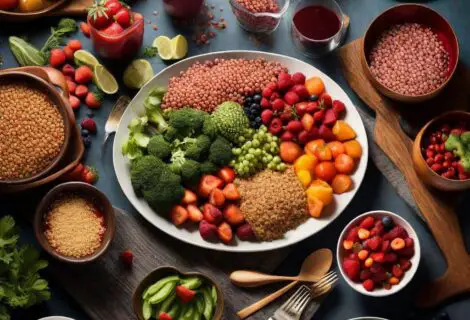Healthy Eating on a Budget: Tips and Tricks for a Nutritious Diet
[disclosure]
Why is Healthy Eating Important?
Benefits of a Nutritious Diet
A balanced and nutritious diet is essential for maintaining overall well-being. Here are some key benefits of healthy eating on a budget:
- Weight management: Consuming the right nutrients and portion sizes can help control weight and prevent obesity, a major risk factor for many chronic diseases.
- Reduced risk of chronic diseases: A healthy diet can lower the risk of developing heart disease, diabetes, certain types of cancer, and other chronic health issues.
- Increased energy levels: Nutrient-rich foods provide the energy needed for daily activities and help prevent fatigue.
- Improved mental health: Proper nutrition has been linked to better mental health and cognitive function, reducing the risk of depression and anxiety.
- Stronger immune system: Consuming a variety of vitamins and minerals helps strengthen the immune system, making it easier to fight off illnesses.
The Cost of Unhealthy Eating
The consequences of unhealthy eating extend beyond physical health. Poor nutrition can lead to higher medical expenses, reduced productivity, and a lower quality of life. It’s crucial to invest in your health by choosing a well-balanced diet. You may enjoy…41 Curious Health and Wellness Statistics.
Tips for Eating Healthy on a Budget
Don’t let a tight budget prevent you from eating healthily. Here are some detailed strategies to help you maintain a nutritious diet without overspending. You may like this…Top 10 Tips for Creating a Balanced Meal Plan.
Meal Planning
Planning your meals in advance can save you both time and money. Here’s how to create an effective meal plan:
- Set a weekly or monthly budget for groceries.
- Check your pantry, refrigerator, and freezer for items you already have.
- Browse weekly store ads to find sales and discounts.
- Create a meal plan based on your budget, available items, and sales.
- Make a shopping list to avoid impulse purchases.
Bulk Buying
Purchasing non-perishable items in bulk can lead to significant savings. Consider buying these staples in bulk:
- Rice
- Beans
- Pasta
- Oats
- Nuts and seeds
- Canned goods (fruits, vegetables, and proteins)
Proper storage is essential to maintain freshness and prevent spoilage. Store dry goods in airtight containers, and consider investing in a vacuum sealer for items like grains and nuts.
Cooking at Home
Cooking at home provides several benefits:
- Cost savings: Eating out can be expensive, especially when choosing healthier options.
- Ingredient control: Cooking at home allows you to control the quality and quantity of ingredients, ensuring better nutrition.
- Portion control: Preparing your meals enables you to manage portion sizes, preventing overeating and waste.
- Creativity: Experiment with new recipes and techniques to create delicious, budget friendly meals.
Seasonal Produce
Choosing seasonal fruits and vegetables offers numerous advantages:
- Cost: Seasonal produce is often more affordable due to higher supply and lower transportation costs.
- Taste: In-season fruits and vegetables are generally fresher and more flavorful.
- Nutrition: Fresh, seasonal produce typically retains more nutrients than out-of-season options.
- Environmental impact: Locally sourced, seasonal items have a smaller carbon footprint.
Store Brands and Sales
Opt for store-brand products when possible, as they’re typically more affordable than name-brand items. Also, take advantage of sales and discounts by adjusting your meal plan to include discounted ingredients.
Plant-Based Options
Incorporating more plant-based foods into your diet can offer health and financial benefits. Consider these affordable plant-based protein sources:
- Beans
- Lentils
- Chickpeas
- Tofu
- Tempeh
- Seitan
- Edamame
These protein sources are not only budget friendly but also versatile, making it easy to add them to various dishes. Additionally, plant based diets can help lower the risk of chronic diseases and improve overall health. You may enjoy…The Power of Whole Foods Plant-Based Eating: A Lifestyle Choice.
Nutritious, Budget Friendly Recipes
Here are some simple, budget friendly recipes to inspire healthy eating while saving money.
Breakfast
- Overnight oats: Combine rolled oats, milk (or a dairy free alternative), yogurt, and a sweetener like honey or maple syrup. Add in your favorite fruits, nuts, or seeds, and refrigerate overnight for a quick, nutritious breakfast.
- Veggie scramble: Sauté your favorite vegetables (e.g., bell peppers, onions, tomatoes, spinach) in a non stick skillet. Whisk eggs with a splash of milk, then pour over the vegetables and cook until set. Serve with whole grain toast or in a whole wheat tortilla.
Lunch
- Mediterranean chickpea salad: Mix canned chickpeas with diced cucumber, tomatoes, red onion, and parsley. Toss with lemon juice, olive oil, salt, and pepper for a refreshing, protein packed lunch.
- Budget friendly burrito bowl: Layer cooked brown rice, black beans, sautéed vegetables, and your choice of protein (e.g., chicken, tofu, or tempeh) in a bowl. Top with salsa, avocado, and a sprinkle of cheese for a delicious, cost effective meal.
Dinner
- One-pot lentil curry: Sauté onions, garlic, and ginger in a large pot. Add red lentils, diced tomatoes, vegetable broth, and your choice of curry powder or paste. Simmer until the lentils are tender, then serve over rice or with naan bread.
- Stuffed bell peppers: Remove the tops and seeds from bell peppers and stuff with a mixture of cooked quinoa, black beans, corn, and salsa. Bake until the peppers are tender, and top with a little cheese if desired.
Conclusion
With some planning and creativity, it’s possible to enjoy a nutritious diet without breaking the bank. By incorporating meal planning, bulk buying, cooking at home, seasonal produce, store brands, and plant based options, you can maintain a healthy lifestyle on a budget. Remember, investing in your health is always worth the effort.
We hope you’ve found these tricks for healthy eating on a budget helpful! We’d love to hear your thoughts on this topic. Please feel free to leave a comment below with your suggestions, experiences, or any budget friendly recipes you’ve tried. Your input can inspire others and help our community thrive in our quest for better health.
Also, if you think this article could benefit your friends and family, don’t hesitate to share it with them. Together, we can support one another in achieving a nutritious and budget friendly lifestyle. Happy healthy eating!
FAQs
Q: Can I freeze cooked meals for later use?
A: Yes, freezing cooked meals can be a great way to save time and money. Ensure that you store them in airtight containers or freezer bags to maintain freshness and prevent freezer burn.
Q: How can I make healthy snacks on a budget?
A: Consider options like homemade popcorn, yogurt with fruit, vegetable sticks with hummus, or whole grain crackers with cheese. These snacks are not only affordable but also nutritious.
Q: What are some budget friendly whole grains to include in my diet?
A: Brown rice, quinoa, barley, and whole wheat pasta are all budget friendly whole grains that can be easily added into your meals.
Q: How can I save money on meat and poultry?
A: Save money by purchasing less expensive cuts, buying in bulk, and watching for sales. Additionally, consider incorporating more plant-based protein sources to reduce your overall meat consumption.
Q: Are canned fruits and vegetables a healthy option?
A: Canned fruits and vegetables can be a convenient, budget friendly alternative to fresh produce. Choose options with no added sugar or salt and be sure to drain and rinse them before consuming to reduce sugar








